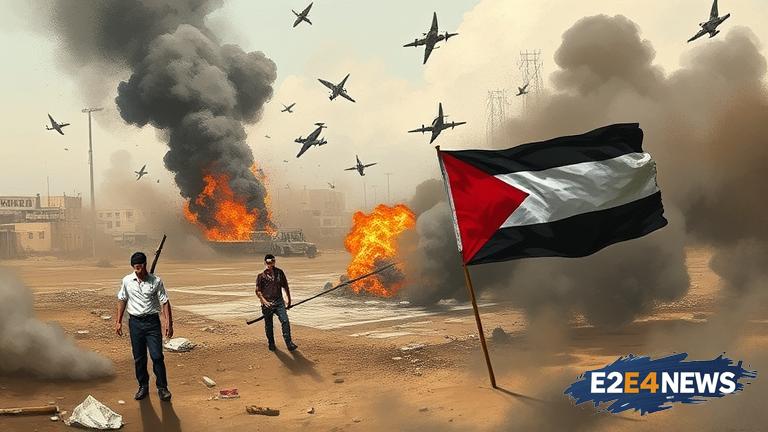The situation in Gaza has escalated significantly, with Israel launching a series of intense airstrikes in response to rocket attacks from Palestinian militant groups. Former US President Donald Trump has urged for a swift end to the conflict, citing the need to protect innocent lives and prevent further destabilization in the region. The Israeli military has targeted various locations in Gaza, including residential areas, hospitals, and schools, resulting in a substantial number of civilian casualties. The international community has expressed concern over the escalating violence, with many leaders calling for an immediate ceasefire. The United Nations has warned of a potential humanitarian crisis, as thousands of Palestinians have been displaced and are in dire need of aid. The US has historically been a key player in the Israeli-Palestinian conflict, and Trump’s statement may be seen as an attempt to reassert American influence in the region. However, the current US administration has maintained a more neutral stance, emphasizing the need for a two-state solution and an end to the cycle of violence. The conflict has sparked widespread protests and demonstrations across the globe, with many condemning Israel’s actions as disproportionate and excessive. The Israeli government has defended its actions, stating that they are necessary to protect its citizens from terrorist threats. The Palestinian Authority has accused Israel of committing war crimes and has called for international intervention to stop the violence. As the situation continues to deteriorate, there are fears of a potential ground invasion by Israeli forces, which could lead to even more devastating consequences. The international community is urging all parties involved to exercise restraint and work towards a peaceful resolution. The European Union has announced plans to provide humanitarian aid to affected areas, while other countries have pledged to support diplomatic efforts to end the conflict. Despite the challenges, there are still hopes for a negotiated settlement, with some analysts suggesting that a ceasefire could be achieved through a combination of diplomatic pressure and economic incentives. The US, in particular, has a crucial role to play in brokering a peace agreement, given its historical ties to the region and its influence over key players. As the conflict rages on, it is becoming increasingly clear that a lasting solution will require a comprehensive and inclusive approach, addressing the underlying issues and grievances of all parties involved. The international community must continue to push for a peaceful resolution, while also providing critical support to those affected by the violence. In the meantime, the people of Gaza remain trapped in a desperate situation, with limited access to basic necessities like food, water, and medical care. The world watches with bated breath as the situation unfolds, hoping that a peaceful resolution can be achieved soon. The conflict has also sparked a heated debate about the role of social media in perpetuating violence and hatred, with some arguing that platforms like Twitter and Facebook have contributed to the escalation of tensions. As the world struggles to come to terms with the scale of the crisis, it is clear that a multifaceted approach will be needed to address the complex issues at play. This includes not only diplomatic efforts but also economic support, humanitarian aid, and a commitment to protecting human rights and international law. The road to peace will be long and challenging, but it is essential that the international community remains committed to finding a solution that works for all parties involved.
